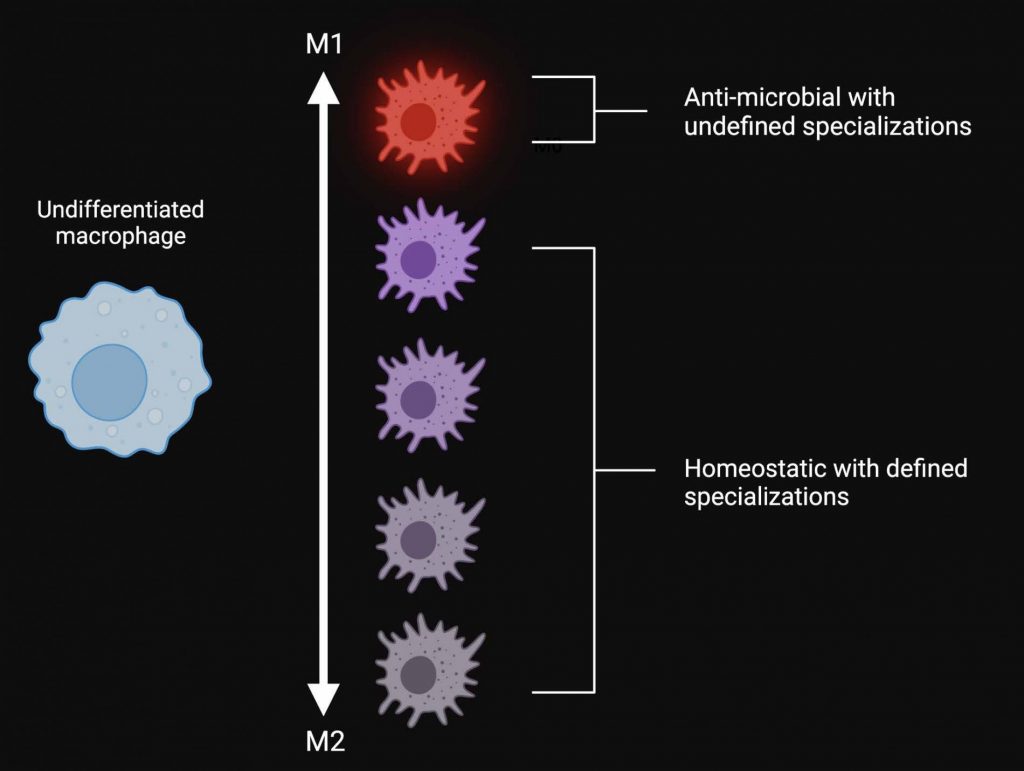CM 793 Presentation Date: December 9, 2021 @ 2:00 PM in Pathology 103
Title: “Macrophage differentiation in response to TB infection”
Advisor: Marcela Henao-Tama

CM 793 Presentation Date: December 9, 2021 @ 2:00 PM in Pathology 103
Title: “Macrophage differentiation in response to TB infection”
Advisor: Marcela Henao-Tama
ABSTRACT:
Mycobacterium tuberculosis (Mtb) is the infectious bacterium that causes pulmonary Tuberculosis (TB) which is still of major concern globally, killing approximately 2 million people per year. TB progression is largely combated by macrophages, innate immune cells, during initial infection. Macrophage phenotypes exist on a spectrum of pro-inflammatory and anti-inflammatory responses, M1 or M2 respectively. This nomenclature also describes the macrophage’s ability to kill Mtb and other pathogens (M1). The extent of M1 specialization remains largely unexplored as subcategorization has focused on M2 subtypes which support specialized functions in homeostasis. Our current understanding of M1 does not assign it distinct properties as we do with M2, rather M1 falls into a black box of antimicrobial activity. Indeed, we have yet to determine if macrophages can phenotypically differentiate into specialized M1 subtypes in response to specific pathogens. Lack of M1 characterization is due, in part, to the methodologies available to evaluate M1 polarization which traditionally focus on evaluating M1 cell surface markers, gene expression, or metabolomics, but fail to comprehensively connect these findings to macrophage specialization against pathogens such as Mycobacterium tuberculosis. A comprehensive M1 profile specialized for pathogen neutralization is therefore lacking. In this study, we begin to understand phenotypic differences in the M1 phenotype of tuberculosis TB resistant and TB susceptible mice.
